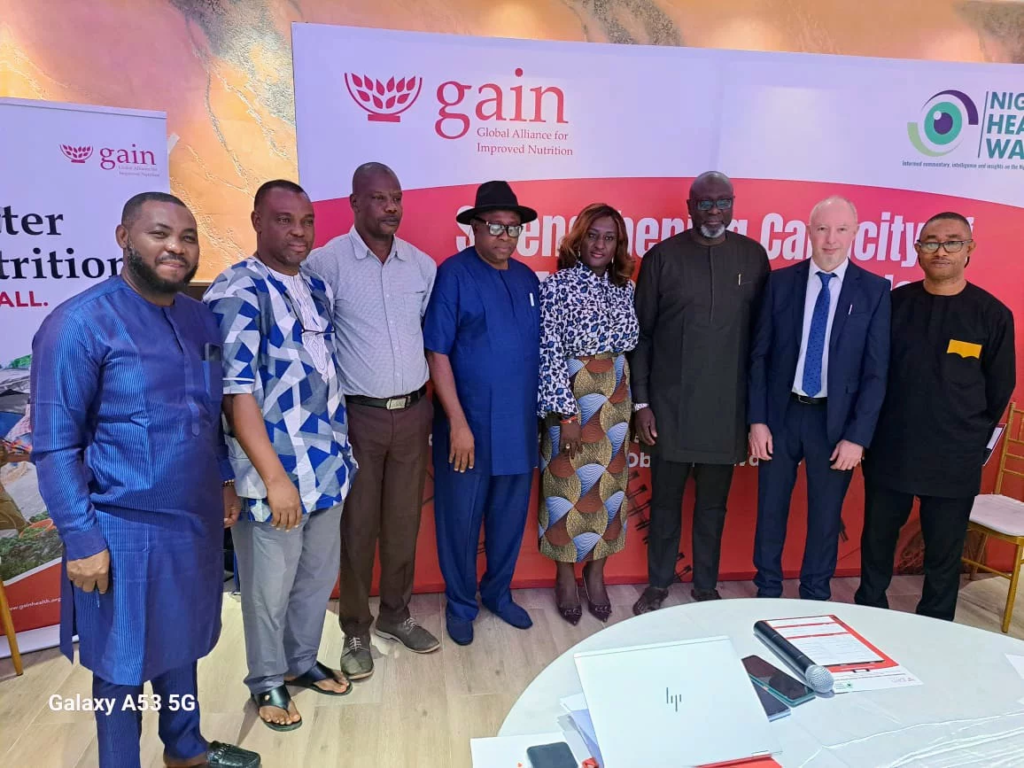
By Justina Auta
The Federal Government and Global Alliance for Improved Nutrition (GAIN), an NGO, have mobilised journalists on effective nutrition reporting to address malnutrition and improve the health and wellbeing of citizens.
Dr Ngozi Onwudiwe, Permanent Secretary, Federal Ministry of Information and Culture said at a two-day training of journalists in Abuja on Wednesday, that the media plays a critical role in advocacy and awareness creation.
The News Agency of Nigeria (NAN) reports that the training was organised by the Federal Ministry of Information with support from GAIN and the Nigeria Health Watch.
The training is designed to strengthen the capacity of journalists for impactful nutrition reportage.
Onwudiwe, represented by Mr Sunday Baba, Director, Public Communication and National Orientation, expressed the government’s commitment towards reducing the high incidence of malnutrition in the country.
The goal, she said, was to improve nutrition indices in the country and improve Nigeria’s rating as the second country with the highest number of malnourished children in the world.
She, therefore, stressed the need for stakeholders to contribute towards addressing the challenges of malnutrition and promote the health and wellbeing of the people.
Mr Micheal Ojo, Country Director, GAIN, stressed the need for journalists to have a strong knowledge about nutrition, to enable them to galvanise necessary actions that would address malnutrition.
This, according to him, will enable media practitioners to be able to challenge government, policy makers and development partners to take proactive actions towards addressing the scourge of malnutrition.
Ojo said that holding duty bearers accountable would largely depend on the journalists’ understanding of the issues impacting on food systems and good nutrition outcome in communities.
“We do not want journalists to only report what is happening in the nutrition space but also challenge duty bearers, including development partners and hold us accountable on our actions or inactions.
“We also need to work in synergy with relevant stallholders in the nutrition space to make the needed impact, which is why our partnership with the media is waxing stronger,” he said.
Dr Adeyinka Onabolu, Senior Advisor on Food Security and Nutrition, GAIN, called for improved ways to transform the food system through enhancing institutions, infrastructure, regulations, and markets.
Onabolu identified external factors affecting food systems as the environment and climate change, globalisation and trade, income growth and distribution, urbanisation, population growth and migration.
Others, she said, include politics and leadership and socio-cultural context.
Similarly, Mr Collins Akanno, a nutritionist, highlighted the need for the media to use data-evidence, while reporting stories, especially about nutrition and food security.
Akanno, an Independent Consultant, Helen Keller International, added that data serves as a foundation for informed journalism, adding that it validates claims, strengthens, and adds credibility and authority to any argument.
“Accurate reporting on the effects of child malnutrition, backed-up by professional insights and success stories can lead to an increase in public support due to greater public knowledge and concern.
“The public support for example may eventually persuade lawmakers to ban street food vendors from selling near schools, which will significantly improve child nutrition and encourage healthier environment.’’
He also stressed the need to engage relevant stakeholders which would result in a synergistic approach that addresses nutrition challenges holistically.
This, he said, would create significant changes in the nutrition and wellbeing of the people in the long run.
NAN reports that the Food Consumption and Micronutrients Survey, 2021, rated Nigeria as the second country worst hit by malnutrition after India.
The survey indicated a surge in the number of malnourished children in the country from seven per cent to 12 per cent within five years. (NAN)



